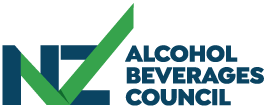We welcome the research by Dr Jude Ball from the University of Otago which shows youth drinking has declined and her research provides more understanding as to why this is the case.
Dr Ball compared research from 2001 to 2022 and found that there is a significant improvement in the way the students are drinking. In 2001 more than half of those in secondary school by year 10 were regularly drinking and going to parties. Today only one of sixty four year 10 students interviewed reported drinking alcohol socially and more had never had more than a few sips of alcohol.
Dr Ball has said that this change in attitude is complex and included social media and spending time online was replacing the drinking and partying of teens from 20 years ago. There was also a stronger awareness of alcohol related health risk.
“This research reinforces the positive change what we have seen for some time, with fewer students under 18 drinking alcohol and those who do are drinking less hazardously”, says NZABC executive director Virginia Nicholls.
“Adolescent drinking has declined dramatically over the past 15 – 20 years in New Zealand and also in other OECD countries”, Mrs Nicholls said.
According to the NZ Youth 2000 survey [i] an increasing proportion of secondary school students are choosing not to drink. The proportion of secondary students who have never drunk alcohol increased markedly from 26% in 2007, to 45% in 2019.
Over time, young people are drinking less often. In the total student population, young people who used alcohol in the past month fell between 2007 and 2019 from 49% in 2007 to 34% in 2019 [ii].
It is encouraging to see that fewer young people drink and drink less hazardously [iii]. In 2006/07 74.5% of 15 to 17 year olds had alcohol in the past year and in 2022 this was reduced by 17.4% to 57.1%.
The way in which New Zealanders drink is undergoing a cultural shift. Alcohol consumption has declined more than 25% since the late 1970s [iii].
“In the annual survey [iv] by NZABC which aims to understand New Zealanders views on how alcohol is perceived across a number of issues found that most of us agree that targeted education and support programmes will create a better understanding of responsible drinking”, Mrs Nicholls said.
One question asked what respondents thought of alcohol education programmes in schools and 76% agreed that this will reduce alcohol-related harm.
“All the research tells us that the earlier you can start talking to teenagers about drinking the less likely it is they will become hazardous drinkers – or start drinking at all, which is why education programmes are so important”, Mrs Nicholls said.
Since 2019 the Tomorrow Project – a social change charity governed by Spirits NZ, NZ Winegrowers and the Brewers Association – has funded the Life Education Trust to deliver ‘Smashed’, a theatre-in-education programme that included an interactive workshop for 12 and 13 year-olds.
The programme also provided practical information on what a standard drink was and counting drinks, and talked about safe drinking, binge drinking, peer pressure, better decision making, and availability of zero and low-alcohol drinks.
Independent research [v] showed the programme was supporting positive changes to youth drinking culture.
“The evidence suggested pupils who attended the programme gained an increased awareness of how different forms of alcohol-related harm might impact them and their peers”, Mrs Nicholls said.
References:
[i] Youth19 was conducted in 2019 in the Auckland, Northland & Waikato regions by researchers from The University of Auckland, Victoria University of Wellington, University of Otago and Auckland University of Technology. Youth19 is a scientifically and ethically rigorous survey, funded by the Health Research Council of New Zealand. Youth19 – A Youth2000 Survey.
[ii] ibid
[iii] NZ Health survey 2021/22, Annual Update of Key Results 2021/22: New Zealand Health Survey | Ministry of Health NZ, accessed 2 Dec 22
[iii] Statistics NZ
[iv] Conducted by Curia Market Research, December 2022, across 1250 people across New Zealand
[v] Smashed “showed us ways to deal with peer pressure,” NZCER, September 2022
